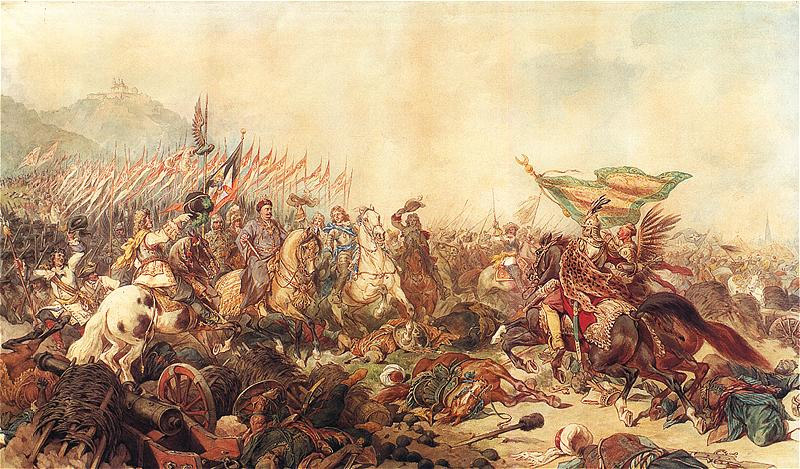Time.
This school year I've really started to realize how incredible time is and how little time we have. Right now I just looked at the clock and was like "It's 4:03 already? Last time I looked it was 2:15." I guess with school, chores, reading, music, and other stuff, time goes by really quickly. And I have fencing tonight... I'm thinking about staying home, but I'm still trying to decide if fencing's gonna be an activity this year.
In Ecclesiastes it says in one of my favorite passages:
"For everything there is a season, and a time for every matter under heaven:
a time to be born, and a time to die; a time to plant, and a time to pluck up what is planted; a time to kill, and a time to heal; a time to break down, and a time to build up; a time to weep, and a time to laugh; a time to mourn, and a time to dance; a time to cast away stones, and a time to gather stones together; a time to embrace, and a time to refrain from embracing; time to seek, and a time to lose; a time to keep, and a time to cast away; time to tear, and a time to sew; a time to keep silent, and a time to speak; a time to love, and a time to hate; a time for war, and a time for peace."
I guess it might just be the time to not fence, the time to drop the sword.
And pick up the oboe? We found a music school that teaches oboe here. Still not sure if I get to take or not. Submerge at Oasis this year is a "yes" for me, I'm pretty sure. I think in a couple ways God's told me to do it this year, so I hope I'm listening correctly.
Greek Fire:
Mom, Dad, Cait, and I watched Timeline the other night, and I wanted to look farther into what Greek Fire was.
"Greek fire was a burning-liquid weapon used by the Byzantine Greeks, Arabs, Chinese, and Mongols. The Byzantines typically used it in naval battles to great effect as it could continue burning even on water. It was largely responsible for many Byzantine military victories, and partly the reason for the Byzantine Empire surviving as long as it did. The formula was a secret and remains a mystery to this day. As one contemporary victim of Greek fire advised his comrades, "Every time they hurl the fire at us, we go down on our elbows and knees, and beseech Our Lord to save us from this danger."
Many accounts note that the fires it caused could not be put out by pouring water on the flames—on the contrary, the water served to intensify or spread them, suggesting that 'Greek fire' may have been a 'thermite-like' reaction, possibly involving a quicklime or similar compound. Others have posited a flammable liquid that floated on water, possibly a form of naphtha or another low-density liquid hydrocarbon, as petroleum was known to Eastern chemists long before its use became widespread in the 1800s.
The ingredients, process of manufacture, and usage were a very carefully guarded military secret—so secretive that it remains a source of speculation to this day. Speculations include
It is not clear if the operator ignited the mixture with a flame as it emerged from the syringe, or if it ignited spontaneously on contact with water or air. If the latter is the case, it is possible that the active ingredient was calcium phosphide, made by heating lime, bones, and charcoal. On contact with water, calcium phosphide releases phosphine, which ignites spontaneously. The reaction of quicklime with water also creates enough heat to ignite hydrocarbons, especially if an oxidizer such as saltpeter is present. However, Greek fire was also used on land.
These ingredients were apparently heated in a cauldron, and then pumped out through a siphon or large syringe (known as a siphònariòs) mounted on the bow of the ship. Such a ship was herself called a siphònòphòròs. It could also be used in hand grenades, made of earthenware vessels. If a pyrophoric reaction was involved, perhaps these grenades contained chambers for the fluids, which mixed and ignited when the vessel broke on impact with the target."
That was from Wikipedia.
The Battle of Vienna.
Today, September 12, was the end of the Battle of Vienna, during which the Austrians pushed the Ottomans out.
The Battle of Vienna took place on September 11 and September 12, 1683 after Vienna had been besieged by the Ottoman Empire for two months. The battle broke the advance of the Ottoman Empire into Europe, and marked the political hegemony of the Habsburg dynasty.
The large-scale battle was won by Polish-Austrian-German forces led by King of Poland Jan III Sobieski against the Ottoman Empire army commanded by Grand Vizier Merzifonlu Kara Mustafa Pasha.
The battle started before all units were fully deployed. Early in the morning at 4:00, Turkish forces opened hostilities to interfere with the Holy League's troop deployment. A move forward was made by Charles, the Austrian army on the left, and the German forces in the center.
Mustafa Pasha launched a counter-attack, with most of his force, but holding back parts of the elite Janissary and Sipahi for the invasion of the city. The Turkish commanders had intended to take Vienna before Sobieski arrived, but time ran out. Their sappers had prepared another large and final detonation under the Löbelbastei,[4] to provide access to the city. While the Turks hastily finished their work and sealed the tunnel to make the explosion more effective, the Austrian "moles" detected the cavern in the afternoon. One of them entered and defused the load just in time.
At that time, above the "subterranean battlefield", a large battle was going on, as the Polish infantry had launched a massive assault upon the Turkish right flank. Instead of focusing on the battle with the relief army, the Turks tried to force their way into the city, carrying their crescent flag.
After 12 hours of fighting, Sobieski's Polish force held the high ground on the right. At about five o'clock in the afternoon, after watching the ongoing infantry battle from the hills for the whole day, four cavalry groups, one of them Austrian-German, and the other three Polish, totaling 20,000 men, charged down the hills. The attack was led by the Polish king in front of a spearhead of 3000 heavily armed winged Polish lancer hussars. This charge broke the lines of the Ottomans, who were tired from the long fight on two sides. In the confusion, the cavalry headed straight for the Ottoman camps, while the remaining Vienna garrison sallied out of its defenses and joined in the assault.
The Ottoman army were tired and dispirited following the failure of both the sapping attempt and the brute force assault of the city, and the arrival of the cavalry turned the tide of battle against them, sending them into retreat to the south and east. In less than three hours after the cavalry attack, the Christian forces had won the battle and saved Vienna from capture.
After the battle, Sobieski paraphrased Julius Caesar's famous quote by saying "veni, vidi, Deus vicit" - "I came, I saw, God conquered"
Again, taken from Wiki.
Remembrance.
I know this is a day late, but I didn't get around to posting it until today. Yesterday was the 6-year mark since 9/11. The day before I'd been watching the video Cait and Daddy took when they visited GroundZero in 2003. And I was quiet. I was 8 when the towers fell, and it took me a while to full grasp what had happened. I knew it was something bad, but I was more concerned about ballet and history club being cancelled than the tragedy. A few months ago I read a book about a firefighter who risked his life to save a business man. And I was crying.
Just remember. And think about it.
God bless.
Kilo-Yankee.




2 comments:
I remember 9/11. We were at our neighbors house and we watched the whole thing on TV. I remember thinking that it was bad, and everyone was sad and shocked, but I was more interested in the facts and how someone could do something like that and how they planned it and all that.
I wasn't interested at all. I was only 6. I know I was a little horrified... but I was mostly mad that cartoons weren't on because of it.
Post a Comment